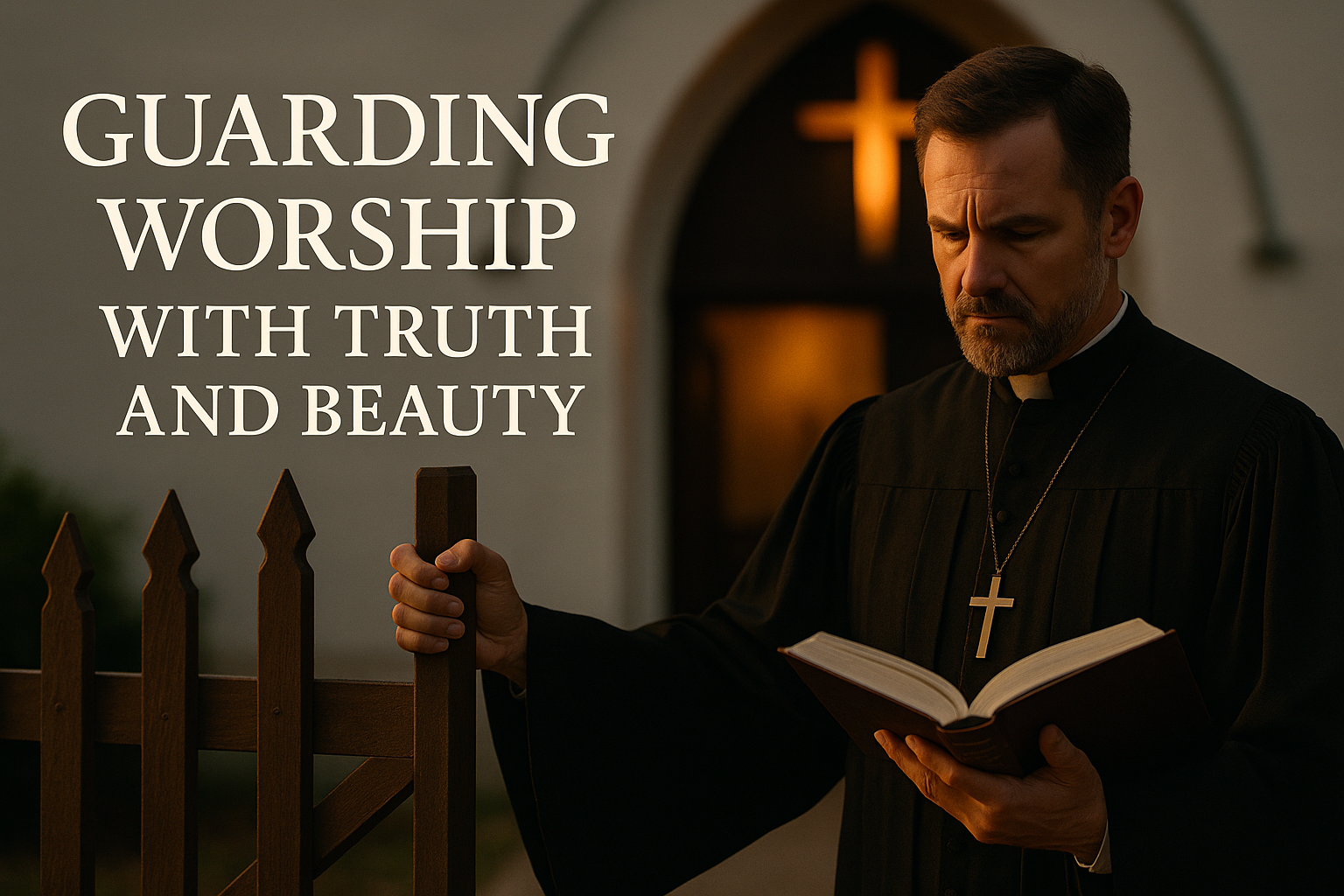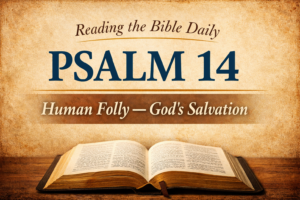⏱️ Estimated Reading Time: 5 min read
The Pastor as a Theological Gatekeeper of Worship
By David de Bruyn
In an age when the aesthetic often overshadows the theological, the pastor’s role as a discerning shepherd in worship has never been more critical. While preaching rightly claims the lion’s share of pastoral focus, the worship service is not limited to exposition alone. The songs we sing and the visuals that accompany our worship carry formative power, shaping minds, stirring affections, and subtly teaching doctrine.
Pastors therefore must not abdicate oversight of worship music and art. These elements are not peripheral, they are catechetical. They train the hearts and imaginations of the people of God. What we sing on the Lord’s Day soon becomes what we believe on Monday morning. Pastors must guard what enters the sanctuary, ensuring that the worship of God is offered in reverence and truth.
“Heresy rarely marches in through the pulpit, it often drifts in through the music.”
Why Biblical Worship Is More Than an Emotional Experience
Modern evangelicalism has often reduced worship to emotional resonance. Biblical worship is not grounded in sentiment, it is anchored in truth. “Let the word of Christ dwell in you richly,” Paul exhorts in Colossians 3:16, “teaching and admonishing one another in all wisdom, singing psalms and hymns and spiritual songs, with thankfulness in your hearts to God.”
Here we find the essential framework for evaluating worship, it must teach, and it must teach the truth. Paul also writes, “I will sing praise with my spirit, and I will sing with my mind also” (1 Corinthians 14:15). The Psalms call us to glad reverence, “Worship the LORD in the splendor of holiness” (Psalm 96:9). Emotion has a right place, but never without truth that feeds and forms the soul.
Music and art in worship should move the heart and nourish the mind. Emotional fervor detached from doctrinal clarity is spiritual malnourishment. Worse still, it can become a gateway to subtle error or even false worship.
How Pastors Can Discern Faithful Worship Music and Art
A pastor need not be a musician or an artist to lead faithfully here, but he must be a theologian who cares deeply about what is sung and seen. This is not a matter of personal preference, it is pastoral fidelity.
Practical ways to cultivate discernment:
- Engage with Church History.
Read the hymns and poetry of ages past. Let the voices of Watts, Newton, Wesley, and Toplady recalibrate expectations for theological richness. - Test Music Theologically.
Does this exalt Christ? Is it faithful to Scripture? Is it clear, rich, and reverent? - Shepherd Your Worship Leaders.
Equip those who lead musically with theological clarity. Worship leaders are spiritual shepherds, not merely skilled performers. - Avoid Trend-Driven Worship.
Discernment often means resisting what is popular. Seek what is faithful and enduring.
The Dangers of Shallow or Theologically Weak Worship
Where discernment in worship is lacking, confusion will follow. Pastors who fail to evaluate the theological substance of their worship risk leading their people into doctrinal shallowness, or worse, into error dressed in melody.
“Shallow worship begets shallow Christians.”
Pastoral neglect here is not neutral, it is dangerous. It shapes a congregation that feels deeply yet believes lightly. Remember, error rarely announces itself at the pulpit, it often slips in through song.
Worship as a Witness to the Watching World
Worship is not only for the edification of the saints, it is a public witness to the glory of God. A watching world sees our God through our worship. When worship is God-centered, Christ-exalting, and biblically rich, it becomes a living testimony of the gospel.
Let services be filled with beauty, not the sentimentalism of pop culture, but the solemn splendor of truth. Let them echo with the voices of the redeemed, proclaiming not vague spirituality, but the crucified and risen Christ.
For the Life of the Believer
Believers, your songs shape your loves. Sing truth on Sunday and carry it into Monday. Pray for your pastors and leaders as they guard what the church sings and sees. Receive rich lyrics and reverent forms with gratitude, since God uses them to mature your faith.
A Call to Reformation in Worship
Pastors, consider what you are leading your people to sing and behold. Does it reflect the majesty of God? Is it doctrinally faithful and spiritually nourishing? Does it flow from the Word and point to Christ?
We need a reformation in worship, not merely of style, but of substance. A return to worship that is theological, reverent, and beautiful. Let us not leave our people vulnerable to every musical trend and artistic whim. Let us lead with discernment, and in doing so, adorn the gospel with beauty and truth.
This article is part of our series: God’s Design for the Local Church and the Life of the Believer.
David de Bruyn was born in Johannesburg, South Africa, where he now pastors New Covenant Baptist Church and resides with his wife and three children. He is a graduate of Central Baptist Theological Seminary in Minnesota and the University of South Africa (D.Th.). David hosts a weekly radio program that is heard throughout much of central South Africa, serves as a frequent conference speaker, and is a lecturer at Shepherds Seminary Africa. Check out his website.




